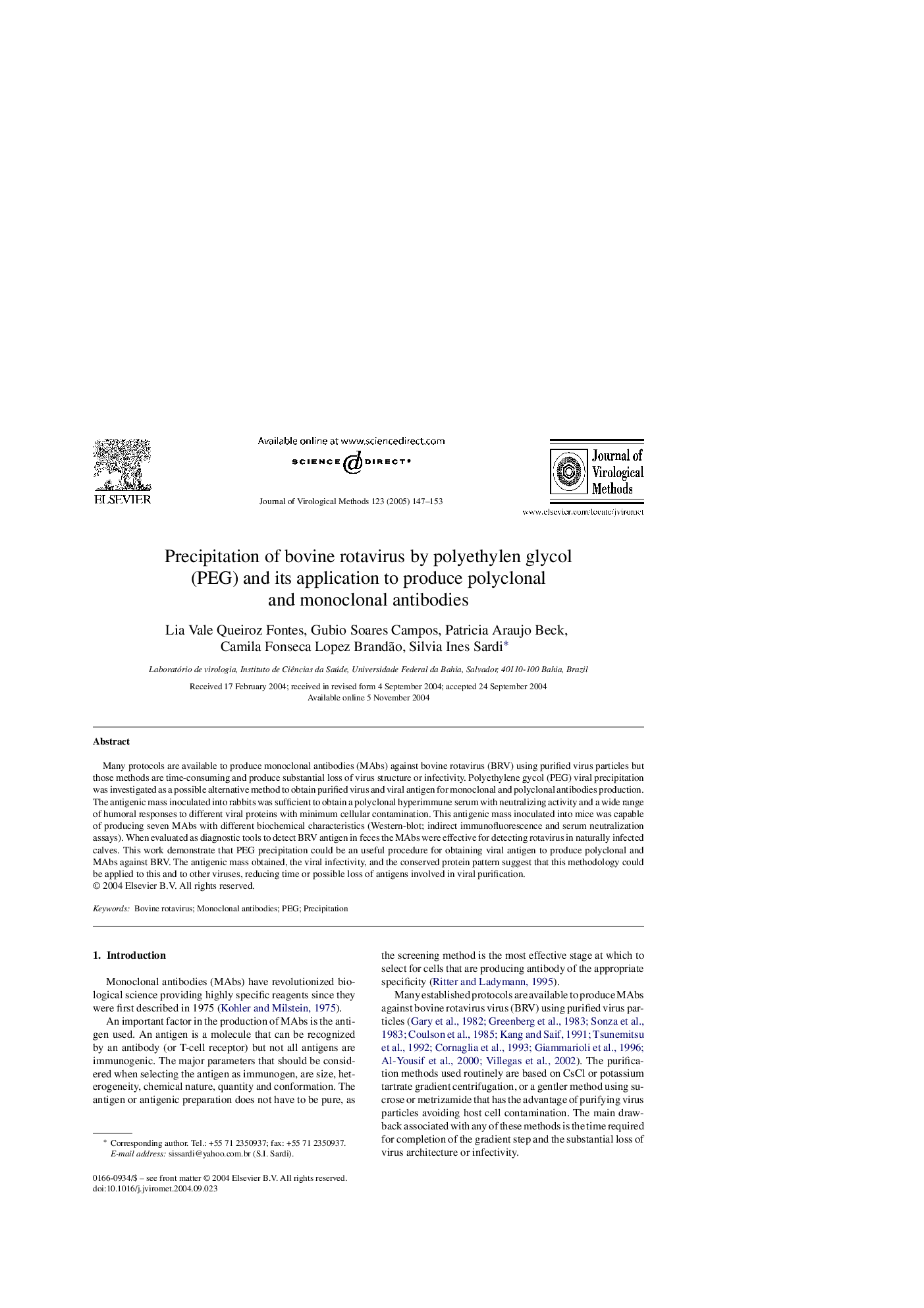| کد مقاله | کد نشریه | سال انتشار | مقاله انگلیسی | نسخه تمام متن |
|---|---|---|---|---|
| 9279627 | 1223687 | 2005 | 7 صفحه PDF | دانلود رایگان |
عنوان انگلیسی مقاله ISI
Precipitation of bovine rotavirus by polyethylen glycol (PEG) and its application to produce polyclonal and monoclonal antibodies
دانلود مقاله + سفارش ترجمه
دانلود مقاله ISI انگلیسی
رایگان برای ایرانیان
کلمات کلیدی
موضوعات مرتبط
علوم زیستی و بیوفناوری
ایمنی شناسی و میکروب شناسی
ویروس شناسی
پیش نمایش صفحه اول مقاله

چکیده انگلیسی
Many protocols are available to produce monoclonal antibodies (MAbs) against bovine rotavirus (BRV) using purified virus particles but those methods are time-consuming and produce substantial loss of virus structure or infectivity. Polyethylene gycol (PEG) viral precipitation was investigated as a possible alternative method to obtain purified virus and viral antigen for monoclonal and polyclonal antibodies production. The antigenic mass inoculated into rabbits was sufficient to obtain a polyclonal hyperimmune serum with neutralizing activity and a wide range of humoral responses to different viral proteins with minimum cellular contamination. This antigenic mass inoculated into mice was capable of producing seven MAbs with different biochemical characteristics (Western-blot; indirect immunofluorescence and serum neutralization assays). When evaluated as diagnostic tools to detect BRV antigen in feces the MAbs were effective for detecting rotavirus in naturally infected calves. This work demonstrate that PEG precipitation could be an useful procedure for obtaining viral antigen to produce polyclonal and MAbs against BRV. The antigenic mass obtained, the viral infectivity, and the conserved protein pattern suggest that this methodology could be applied to this and to other viruses, reducing time or possible loss of antigens involved in viral purification.
ناشر
Database: Elsevier - ScienceDirect (ساینس دایرکت)
Journal: Journal of Virological Methods - Volume 123, Issue 2, February 2005, Pages 147-153
Journal: Journal of Virological Methods - Volume 123, Issue 2, February 2005, Pages 147-153
نویسندگان
Lia Vale Queiroz Fontes, Gubio Soares Campos, Patricia Araujo Beck, Camila Fonseca Lopez Brandão, Silvia Ines Sardi,